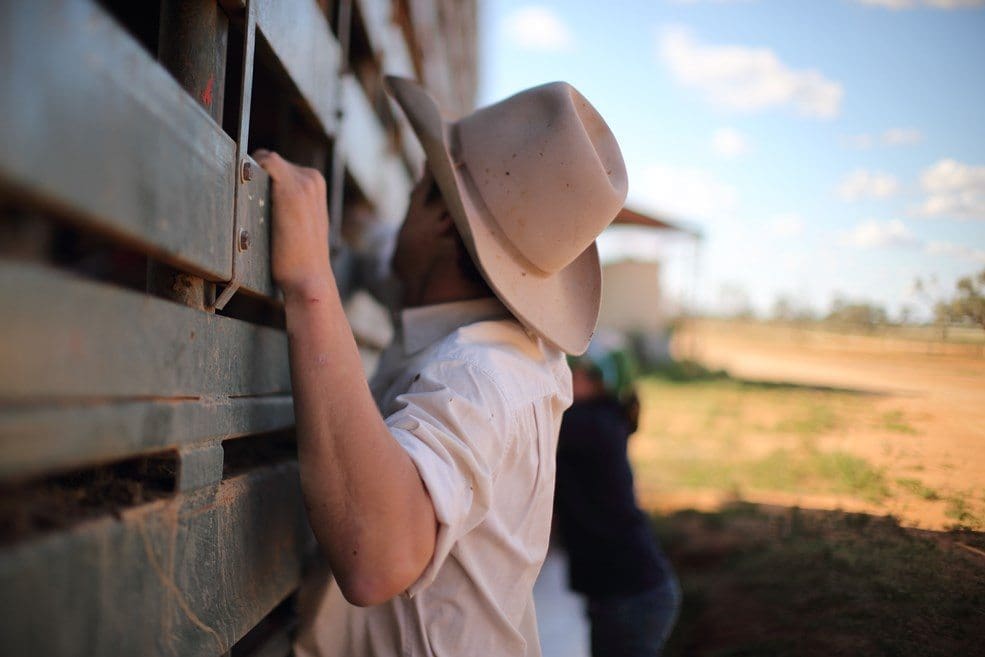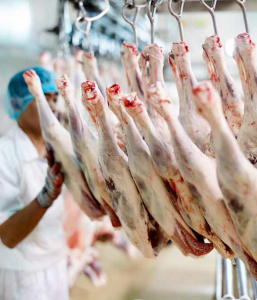Latest listings on our recruitment page, Jobs Central:
- Marketing Coordinator – (Andrews Meat Co)
- Member Services Officer – (Angus Australia)
- Assistant Farm Manager, Cropping – (Carrington Cotton)
- Group Financial Controller – (via Rimfire)
- Station Hand, North QLD – (via Red Dog)
- Livestock Market Officer, Roma – (MLA)
- Livestock Buyers, Cloncurry & Wagga – (JBS)
- Trainee Livestock Buyer, Dinmore – (JBS)
- Livestock Clerk, Townsville – (JBS)
- Farm Manager, Brindley Park – (ACC/ACBH)
- Stockperson, Mortlake – (Te Mania Angus)
- Assistant Cropping Manager – (Ceres)
- Experienced Boners, Slicers, Slaughtermen – (Greenhams)
- Feedlot Manager, Central QLD – (Allied Beef)
Click here to access these and other exciting meat and livestock supply chain jobs currently listed on Jobs Central.

STATISTICS suggest management of Q Fever risk in the livestock production sector is still largely ignored, although awareness appears to be well advanced within the Australian red meat processing industry.
Data provided from the Australian Q Fever Register shows that more than three quarters of registrants on the database either work in, or frequently visit (ie contractors or staff) a meat processing plant.
Just 14 percent of the registrants on the database come under the category called ‘work with animals,’ which covers sheep and cattle production, either intensive (feedlots) or extensive.
The Australian Q Fever Register, which has been operating since 2001, is the first non-statutory health register to be established in Australia.
It provides a secure repository of records documenting the Q Fever status for individuals as an aid for the meat and livestock industry in managing workplace health risks from the disease, provides a stakeholder call centre for inquiries, and serves as a valuable and unique resource of data for researchers studying the disease.
Q Fever is a highly infectious zoonotic (transfers easily from animals to humans) disease. The risk of infection is linked to people associated with the meat processing industry, followed by the broader livestock industry. Most affected people recover, but a small proportion may suffer severe and chronic debilitating disease, and in rare instances the disease may cause fatality.
Work-related disease (acute or chronic) due to Q Fever represents a substantial economic cost to the industry from time off work. A Q Fever vaccine has been available in Australia since 1989 and has been shown to be highly protective. The Commonwealth-funded National Q Fever Management Program was run from 2001 to 2006, largely to increase vaccine uptake in people most likely to be exposed to the disease. Recorded clinical cases of the disease are fewer now than in years gone by, because of uptake of the vaccine.
The Australian Q Fever Register serves as a repository of records documenting the Q Fever status for individuals, as an aid for the meat and livestock industry in managing workplace health risks from the disease.
 The program also provides a help-line service to provide a reliable record of Q Fever immune status for individuals as part of effective Q Fever risk management in the workplace.
The program also provides a help-line service to provide a reliable record of Q Fever immune status for individuals as part of effective Q Fever risk management in the workplace.
The register provides a permanent and secure repository of an individual’s Q Fever status, ensuring that individuals only need to be tested and vaccinated once as per current health recommendations. This is an important contribution to lowering health risks by ensuring that individuals do not inadvertently get tested or vaccinated more than once, procedures that can result in serious adverse side effects. Once an individual’s Q Fever status is entered into the Register and reconciled, a Q Fever card is produced and mailed to the individual. The card is a durable plastic card the size of a credit-card, printed with indelible ink. The card provides a permanent record of the individual’s Q Fever number and status, that can be carried by the individual and displayed on request.
Any individual whose details have been entered onto the register can ring the register and ask for an immediate printed Q Fever status report to be emailed as evidence of their Q Fever status. With an individual’s consent, an authorised employer may check an individual’s Q Fever status as well by calling the register helpline or through the Q Fever website.
Register staff handle, on average, at least 40 telephone calls per day. The register is voluntary meaning that information about any individual can only be entered into the Register if that individual signs a consent form authorising use of their personal information.
For the year ended June 30 2017, a further 18,594 individuals were added to the register, the second highest level of activity in its 16 years of operation. The register can be accessed via the internet at www.qfever.org.

HAVE YOUR SAY